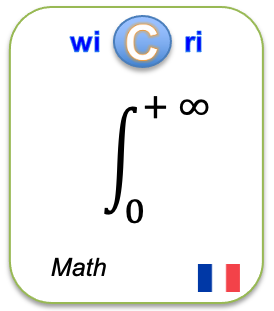Logic, Formal Linguistics and Computing in France: From Non-reception to Progressive Convergence
Identifieur interne : 000013 ( Main/Exploration ); précédent : 000012; suivant : 000014Logic, Formal Linguistics and Computing in France: From Non-reception to Progressive Convergence
Auteurs : Pierre Mounier-Kuhn [France]Source :
Descripteurs français
- Wicri :
- topic : Traduction automatique.
- geographic : France.
English descriptors
- mix :
Abstract
How did the theory and practice of computing interact to generate a new discipline, computer science? Studying the French scene, in comparison with other countries, reveals that in most cases computing developed initially as an ancillary technique of applied mathematics, with little awareness of the path-breaking theories of computability elaborated in the 1930s. This was particularly clear in France, where mathematical logic was almost inexistent and disregarded by the Bourbaki group.It was only in the early 1960s that researchers in the emerging field of computing felt the need for theoretical models, and discovered the Turing machine and recursive functions. Simultaneously, an interest for language theories and information structures, fostered by practical projects such as machine translation, converged with issues raised by software development and the nascent theory of automata.The convergence of these diverse intellectual agenda was central in the process of construction of the new discipline.
Url:
DOI: 10.1007/978-3-319-47286-7_2
Affiliations:
Links toward previous steps (curation, corpus...)
- to stream Hal, to step Corpus: 000021
- to stream Hal, to step Curation: 000021
- to stream Hal, to step Checkpoint: 000008
- to stream Main, to step Merge: 000013
- to stream Main, to step Curation: 000013
Le document en format XML
<record><TEI><teiHeader><fileDesc><titleStmt><title xml:lang="en">Logic, Formal Linguistics and Computing in France: From Non-reception to Progressive Convergence</title><author><name sortKey="Mounier Kuhn, Pierre" sort="Mounier Kuhn, Pierre" uniqKey="Mounier Kuhn P" first="Pierre" last="Mounier-Kuhn">Pierre Mounier-Kuhn</name><affiliation wicri:level="1"><hal:affiliation type="laboratory" xml:id="struct-1321" status="VALID"> <orgName>Centre Alexandre Koyré - Centre de Recherche en Histoire des Sciences et des Techniques</orgName> <orgName type="acronym">CAK-CRHST</orgName> <desc> <address> <addrLine>27 rue Damesme 75013 Paris</addrLine> <country key="FR"></country> </address> <ref type="url">http://www.koyre.cnrs.fr</ref> </desc> <listRelation> <relation active="#struct-99539" type="direct"></relation> <relation active="#struct-300020" type="direct"></relation> <relation name="UMR8560" active="#struct-441569" type="direct"></relation> </listRelation> <tutelles><tutelle active="#struct-99539" type="direct"><org type="institution" xml:id="struct-99539" status="VALID"> <orgName>École des hautes études en sciences sociales</orgName> <orgName type="acronym">EHESS</orgName> <desc> <address> <addrLine>54, boulevard Raspail 75006 Paris</addrLine> <country key="FR"></country> </address> <ref type="url">http://www.ehess.fr/</ref> </desc> </org></tutelle><tutelle active="#struct-300020" type="direct"><org type="institution" xml:id="struct-300020" status="VALID"> <orgName>Cité des Sciences et de l'Industrie</orgName> <desc> <address> <country key="FR"></country> </address> </desc> </org></tutelle><tutelle name="UMR8560" active="#struct-441569" type="direct"><org type="institution" xml:id="struct-441569" status="VALID"> <idno type="IdRef">02636817X</idno> <idno type="ISNI">0000000122597504</idno> <orgName>Centre National de la Recherche Scientifique</orgName> <orgName type="acronym">CNRS</orgName> <date type="start">1939-10-19</date> <desc> <address> <country key="FR"></country> </address> <ref type="url">http://www.cnrs.fr/</ref> </desc> </org></tutelle></tutelles></hal:affiliation><country>France</country></affiliation></author></titleStmt><publicationStmt><idno type="wicri:source">HAL</idno><idno type="RBID">Hal:hal-01615297</idno><idno type="halId">hal-01615297</idno><idno type="halUri">https://hal.inria.fr/hal-01615297</idno><idno type="url">https://hal.inria.fr/hal-01615297</idno><idno type="doi">10.1007/978-3-319-47286-7_2</idno><date when="2015-10-08">2015-10-08</date><idno type="wicri:Area/Hal/Corpus">000021</idno><idno type="wicri:Area/Hal/Curation">000021</idno><idno type="wicri:Area/Hal/Checkpoint">000008</idno><idno type="wicri:explorRef" wicri:stream="Hal" wicri:step="Checkpoint">000008</idno><idno type="wicri:Area/Main/Merge">000013</idno><idno type="wicri:Area/Main/Curation">000013</idno><idno type="wicri:Area/Main/Exploration">000013</idno></publicationStmt><sourceDesc><biblStruct><analytic><title xml:lang="en">Logic, Formal Linguistics and Computing in France: From Non-reception to Progressive Convergence</title><author><name sortKey="Mounier Kuhn, Pierre" sort="Mounier Kuhn, Pierre" uniqKey="Mounier Kuhn P" first="Pierre" last="Mounier-Kuhn">Pierre Mounier-Kuhn</name><affiliation wicri:level="1"><hal:affiliation type="laboratory" xml:id="struct-1321" status="VALID"> <orgName>Centre Alexandre Koyré - Centre de Recherche en Histoire des Sciences et des Techniques</orgName> <orgName type="acronym">CAK-CRHST</orgName> <desc> <address> <addrLine>27 rue Damesme 75013 Paris</addrLine> <country key="FR"></country> </address> <ref type="url">http://www.koyre.cnrs.fr</ref> </desc> <listRelation> <relation active="#struct-99539" type="direct"></relation> <relation active="#struct-300020" type="direct"></relation> <relation name="UMR8560" active="#struct-441569" type="direct"></relation> </listRelation> <tutelles><tutelle active="#struct-99539" type="direct"><org type="institution" xml:id="struct-99539" status="VALID"> <orgName>École des hautes études en sciences sociales</orgName> <orgName type="acronym">EHESS</orgName> <desc> <address> <addrLine>54, boulevard Raspail 75006 Paris</addrLine> <country key="FR"></country> </address> <ref type="url">http://www.ehess.fr/</ref> </desc> </org></tutelle><tutelle active="#struct-300020" type="direct"><org type="institution" xml:id="struct-300020" status="VALID"> <orgName>Cité des Sciences et de l'Industrie</orgName> <desc> <address> <country key="FR"></country> </address> </desc> </org></tutelle><tutelle name="UMR8560" active="#struct-441569" type="direct"><org type="institution" xml:id="struct-441569" status="VALID"> <idno type="IdRef">02636817X</idno> <idno type="ISNI">0000000122597504</idno> <orgName>Centre National de la Recherche Scientifique</orgName> <orgName type="acronym">CNRS</orgName> <date type="start">1939-10-19</date> <desc> <address> <country key="FR"></country> </address> <ref type="url">http://www.cnrs.fr/</ref> </desc> </org></tutelle></tutelles></hal:affiliation><country>France</country></affiliation></author></analytic><idno type="DOI">10.1007/978-3-319-47286-7_2</idno></biblStruct></sourceDesc></fileDesc><profileDesc><textClass><keywords scheme="mix" xml:lang="en"><term>Computational linguistics</term><term>Computer science</term><term>Discipline building</term><term>France</term><term>Informatique</term><term>Machine translation</term><term>Mathematical logic</term><term>Reception</term></keywords><keywords scheme="Wicri" type="topic" xml:lang="fr"><term>Traduction automatique</term></keywords><keywords scheme="Wicri" type="geographic" xml:lang="fr"><term>France</term></keywords></textClass></profileDesc></teiHeader><front><div type="abstract" xml:lang="en">How did the theory and practice of computing interact to generate a new discipline, computer science? Studying the French scene, in comparison with other countries, reveals that in most cases computing developed initially as an ancillary technique of applied mathematics, with little awareness of the path-breaking theories of computability elaborated in the 1930s. This was particularly clear in France, where mathematical logic was almost inexistent and disregarded by the Bourbaki group.It was only in the early 1960s that researchers in the emerging field of computing felt the need for theoretical models, and discovered the Turing machine and recursive functions. Simultaneously, an interest for language theories and information structures, fostered by practical projects such as machine translation, converged with issues raised by software development and the nascent theory of automata.The convergence of these diverse intellectual agenda was central in the process of construction of the new discipline.</div></front></TEI><affiliations><list><country><li>France</li></country></list><tree><country name="France"><noRegion><name sortKey="Mounier Kuhn, Pierre" sort="Mounier Kuhn, Pierre" uniqKey="Mounier Kuhn P" first="Pierre" last="Mounier-Kuhn">Pierre Mounier-Kuhn</name></noRegion></country></tree></affiliations></record>Pour manipuler ce document sous Unix (Dilib)
EXPLOR_STEP=$WICRI_ROOT/Wicri/Mathematiques/explor/BourbakiV1/Data/Main/Exploration
HfdSelect -h $EXPLOR_STEP/biblio.hfd -nk 000013 | SxmlIndent | more
Ou
HfdSelect -h $EXPLOR_AREA/Data/Main/Exploration/biblio.hfd -nk 000013 | SxmlIndent | more
Pour mettre un lien sur cette page dans le réseau Wicri
{{Explor lien
|wiki= Wicri/Mathematiques
|area= BourbakiV1
|flux= Main
|étape= Exploration
|type= RBID
|clé= Hal:hal-01615297
|texte= Logic, Formal Linguistics and Computing in France: From Non-reception to Progressive Convergence
}}
|
| This area was generated with Dilib version V0.6.33. | |



